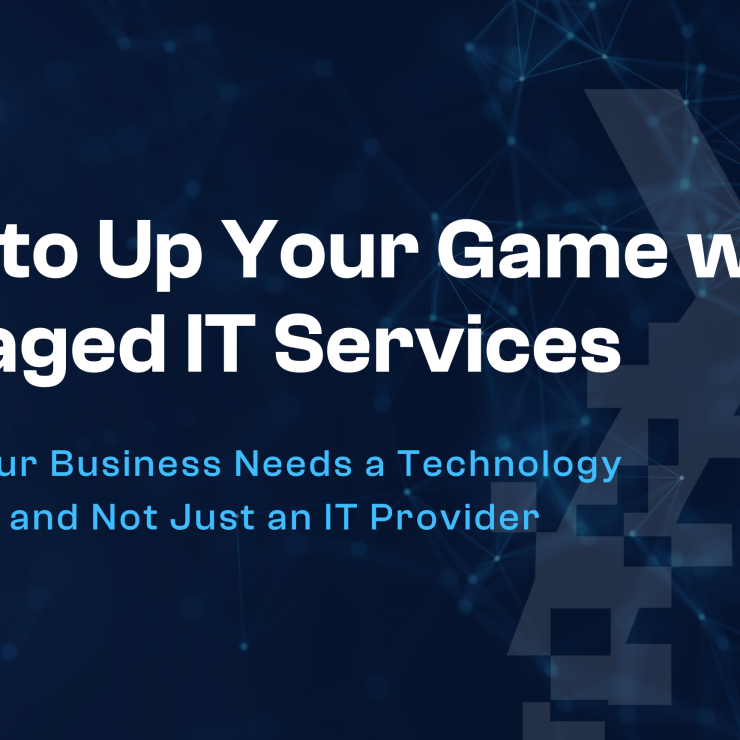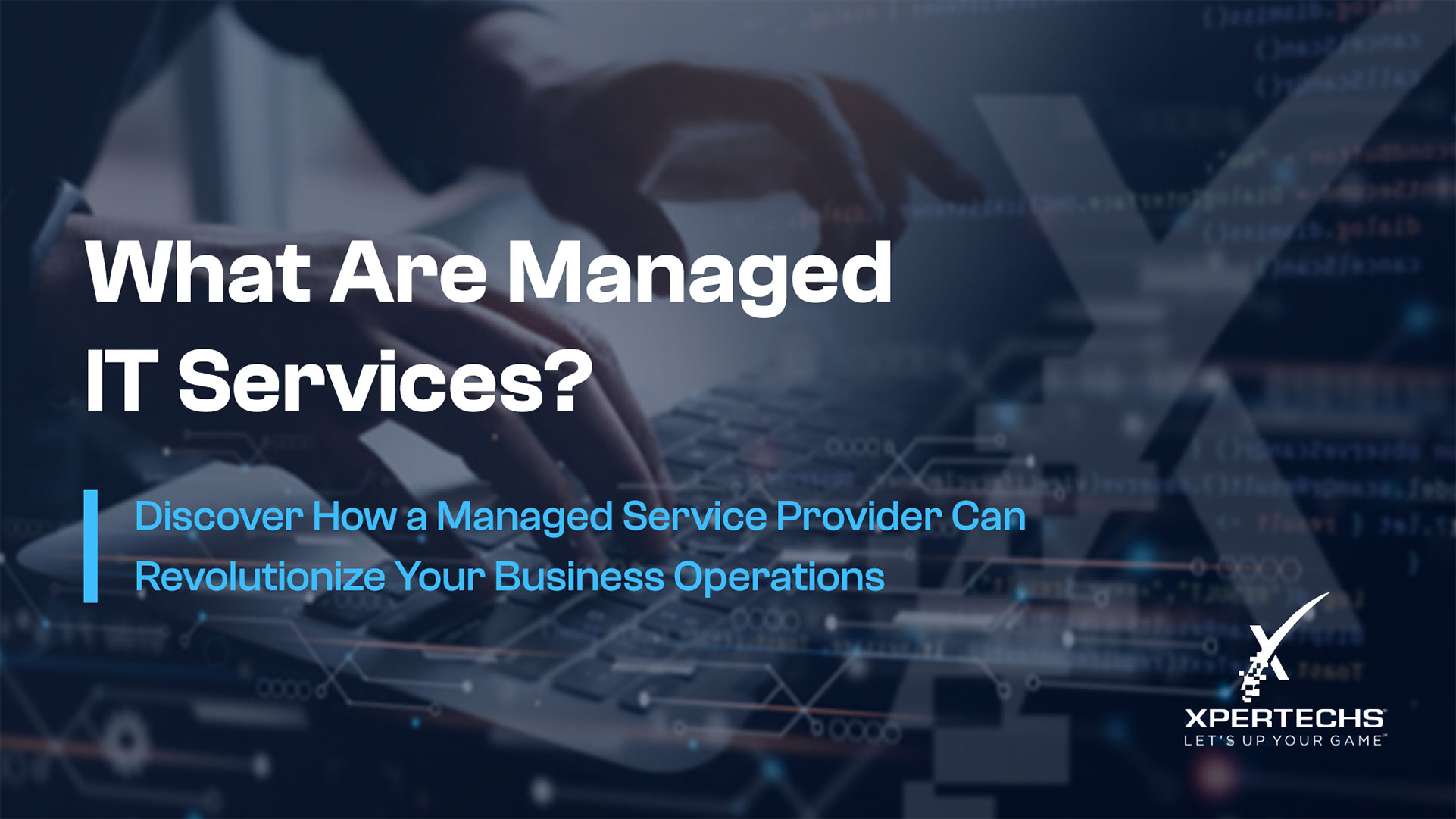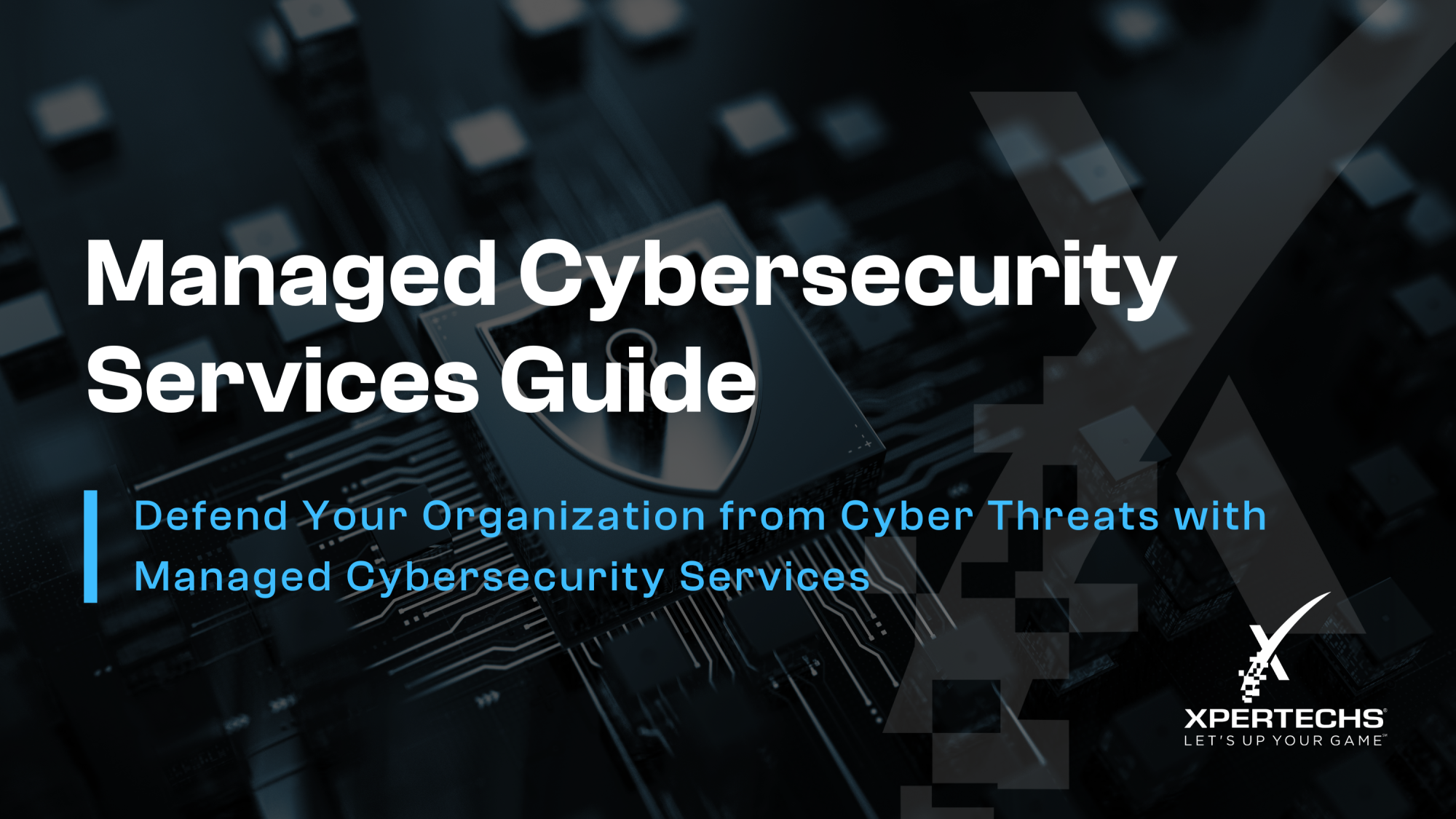Managed IT Services Guide

Modern businesses run on technology, which means many of the struggles they encounter will involve IT. As they brainstorm ways to deal with these IT issues, many executives will realize that their IT support provider isn’t offering them everything they need to be competitive. This realization often leads them toward managed IT services.
What are Managed IT Services?
This is an approach to IT management and support that moves an organization on a path of IT maturity. Through the use of best practices, proactive planning, and fast reactive support, organizations can build a reliable IT foundation that allows them to leverage technology effectively. This, in turn, maximizes IT’s impact on the business, enhancing operations, fostering success, and delivering an exceptional technology experience for everyone.
In this article, we will take a deeper look into what are the benefits of managed IT services, what is included in managed IT services, and why you need managed IT services.
Table of Contents
Signs of Poor IT Management: Why You Need Managed IT Services
Many executives and managers find that when IT performance is slipping, managing IT takes more and more of their time. In fact, it takes a lot more of everyone’s time. For the employee, this translates into dwindling efficiency. Executives’ attention is continually turned away from high-level goals because they have to pay more attention to what’s happening with IT.
You would think that when IT isn’t performing well the IT team would be sitting around doing nothing, but the opposite is true. They’re actually very busy. They’re just not busy with the right things, and here’s how that shows up in your business:
- You’re the victim of a cyber attack.
- Technology problems never get solved.
- It takes forever to get IT to respond.
- Remote workers are hobbled instead of enabled.
- You can never use technology as a competitive advantage.
Reasons Why You’re Not Happy with IT
This might seem too easy, but you may not be happy with IT because IT support is not taking care of the basics. This can happen when your IT team doesn’t have the bandwidth to get to everything. They could be fixing issues left and right but never have time for basic management. It could also be that they don’t have the right processes established or even that they don’t exactly know what IT best practices should be.
You Need an IT Partner, Not Just a Provider: Choose the Right Managed IT Services Provider
If you recognize the signs of bad IT management and identify some of the reasons why you’re not happy with IT, you might be confused as to what direction to go. After all, the provider you have now might claim to be a “Managed IT Service” provider. Why, then, aren’t things getting managed?
The answer is that you need a different approach and you need a different type of relationship.
The approach that you’re looking for is one where you and the managed IT services company share the same goals. Your IT company shouldn’t make more money when you have more problems. Success for them should be measured in your success in building an IT system that’s predictable, and that can be used as a springboard to innovation and resiliency. When you have that kind of approach, it naturally nurtures a partnership because the MSP isn’t just interested in your technology. They’re interested in your business, your goals, and creating a roadmap for your success.
So, how do you recognize that type of IT company?
What an IT Partner Looks Like
When you drill down to its essence, what’s going to set an IT partner apart from an IT provider is going to be three things:
- More know-how
- More communication
- More commitment
We’ll delve into these qualities in more detail, but first, let’s consider why they are so important. The answer lies in the outcomes. We’re not just talking about IT results; we’re talking about business results. This broader vision of how IT can support your overall goals enables greater alignment between technology and your organizational leaders. Our goal is to ensure the most significant enhancements. Do you want to:
- Improve customer satisfaction
- Increase sales reach to more prospects
- Increase revenue
- Retain employees
- Streamline operations
- Improve productivity
- Increase market share
Technology should be one of the tactics you use to reach your goals. When you think of IT in this way, it suddenly is more than overhead. It’s power for your forward movement.
More Know-How
Technology is evolving and expanding all the time and a managed IT service partner will expend the time and resources necessary to stay up to date. They’ll also have enough people to cover all of the IT disciplines that make up a comprehensive IT department. Some of the roles that you’ll get access to include:
- Network Engineer
- Automation Engineer
- Cybersecurity Specialist
- Help Desk Technician
- vCIO for IT Guidance
If you were to hire all of these positions internally, the cost would be prohibitive for many businesses so it’s a great benefit to get access to just what you need and to know that they’re experts.
More Ideas
Creative application of technology is necessary to leverage IT to meet your business goals. Expect an MSP partner to get to know your business and processes so they can provide suggestions for new ways to use technology. As you hear of tech trends in your industry and bring them to your IT partner, they should help you evaluate the technology and determine how it could fit into your existing systems.
You should have a designated vCIO (Virtual Chief Information Officer) or IT Advisor with the managed IT service company who meets with you regularly to discuss and plan IT improvements.
Here are some topics that you could expect your vCIO to bring up for discussion:
- Planning and budgeting for IT improvements
- Opportunities for using IT automation to streamline processes
- Advanced cybersecurity tactics that are needed to manage risk, compliance and attain cyber insurance.
- Vendor suitability and their accountability for your security
- Evaluation of technology tools for suitability
When you get IT guidance from your managed IT services partner about how you should invest in technology, you’re able to make well-informed decisions about how to invest.
More Commitment
Commitment has to do with the relationship that you’ll develop with your managed IT services partner. Commitment means that your best interests are at the heart of everything they do.
As we mentioned, one way to gauge commitment is to have shared goals. Another is to assess the level of communication that you can expect.
Technology services are ultimately delivered by people, for people, and what says “relationship” better than that? Communication forges the connections that create relationships. So whether it’s the Help Desk Technician talking to an employee, or the vCIO meeting with the CEO, communication is open, friendly, respectful, and responsive.
What Is Included in Managed IT Services?
What is included in managed IT services? A typical managed IT services package covers a wide range of essential IT functions designed to keep your business running smoothly. Network management is a fundamental component, ensuring that your network operates efficiently and securely. This includes monitoring network performance, managing hardware and software, and troubleshooting issues.
Cybersecurity is another critical element. Managed service providers implement robust security measures to protect your business from cyber threats. This includes firewalls, anti-virus software, and continuous monitoring of suspicious activities. Additionally, data backup and recovery services are vital for safeguarding your business information. Regular backups ensure that data can be quickly restored in the event of a loss, minimizing downtime and data loss.
Help desk support is also a key service, providing your employees with immediate assistance for any IT-related issues. This support ensures that problems are resolved quickly, keeping your business operations uninterrupted.
At XPERTECHS, we also provide co-managed IT services, a flexible solution that allows your in-house IT team to work alongside our experts. This collaborative approach ensures that your business benefits from the best of both worlds: internal knowledge and external expertise.
Learn more about our co-managed IT services on our Co-Managed IT Services page.
Benefits of Managed IT Services
What are the benefits of managed IT services? First, there’s the benefit of cost savings. Outsourcing IT tasks to a Managed Service Provider (MSP) like XPERTECHS eliminates the need for expensive in-house IT teams. Instead, businesses can access a broad range of expertise without the associated costs of full-time employees.
Improved security is another major advantage. MSPs specialize in the latest cybersecurity practices, ensuring that your business is protected against emerging threats. Furthermore, the scalability of managed IT services means they can grow with your business, providing tailored support that adapts to your needs. One satisfied customer reported a significant increase in operational efficiency and a reduction in downtime, attributing these improvements to their partnership with XPERTECHS.
How to Evaluate a Managed IT Services Company
Knowing what you’re looking for in an IT company is one thing. Recognizing that those qualities are present when you’re evaluating them is another. Here are some talking points that you’ll want to include in your conversations to evaluate managed IT services companies.
- What’s your approach to IT management?
- Why will your approach get us different results than what we’re getting now?
- Tell me how you’ll work with us to develop IT strategy.
- What IT specialties do you have on your bench? Any certifications for your company or individuals?
- Tell me how you’ve helped other companies innovate with technology.
- Are your security processes and practices third-party validated?
FAQs About Managed IT Services
We know that you may have more questions about managed IT services. To help you better understand, we have answered a few of the most common questions we hear below.
What Are Managed IT Services?
Managed IT services involve outsourcing various IT tasks to a third-party provider, known as a Managed Service Provider (MSP). These services typically include network management, cybersecurity, data backup, and help desk support. By leveraging an MSP, businesses can ensure their IT operations are handled efficiently and securely, allowing them to focus on their core activities.
How Do Managed IT Services Benefit My Business?
Managed IT services offer numerous benefits, including cost savings, access to expert knowledge, improved security, and scalability. These services provide businesses with predictable IT expenses and access to a pool of professionals who ensure optimal IT infrastructure performance. Enhanced security measures and scalable solutions adapt to the business’s growth needs, allowing companies to maintain focus on their primary objectives.
What Types of Businesses Need Managed IT Services?
Any business that relies on IT for operations can benefit from managed IT services. This includes small to large enterprises across various industries such as healthcare finance, manufacturing and retail. These services are particularly advantageous for businesses seeking to optimize their IT infrastructure and ensure robust security measures.
How Are Managed IT Services Delivered?
Managed IT services are delivered through a combination of remote and on-site support. Providers monitor systems 24/7, perform regular maintenance, and respond to any issues that arise, ensuring minimal downtime and maintaining smooth business operations. This proactive approach helps in promptly addressing and resolving IT issues before they escalate.
What Is the Cost of Managed IT Services?
The cost of managed IT services varies depending on the services required and the size of the business. MSPs typically offer flexible pricing models, such as per-device or per-user pricing, allowing businesses to choose a plan that fits their budget. These models ensure that companies can predict their IT expenses and avoid unexpected costs.
Can Managed IT Services Be Customized?
Yes, managed IT services can be tailored to meet your business’s specific needs. Providers work closely with clients to understand their requirements and develop customized service plans. This flexibility ensures that businesses receive the precise support they need to achieve their IT goals and address their unique challenges.
Time to Up Your Game With Managed IT Services From XPERTECHS
Take the first step towards seamless IT management with XPERTECHS’ managed IT services. Our dedicated team is ready to assist you in finding the perfect IT solutions for your business. Schedule a consultation with us and see how we can enhance your IT operations. Reach out now and let us help you achieve your IT goals.


